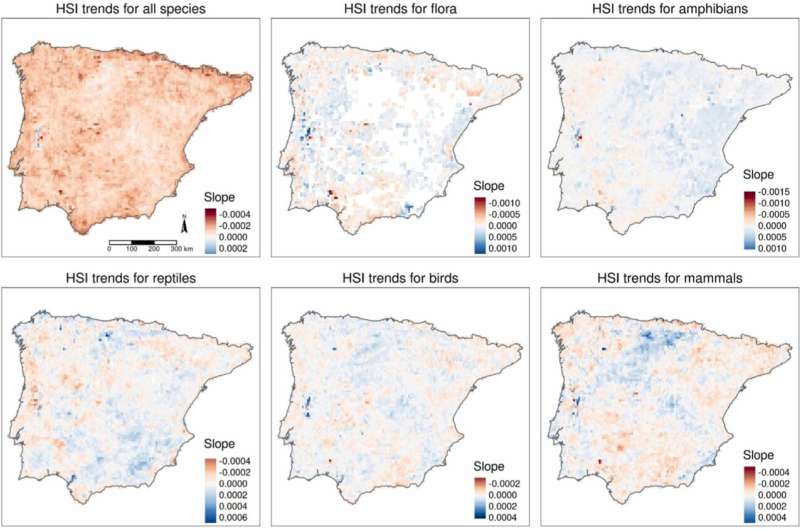
A study published in Global Ecology and Conservation shows that COVID-19 lockdowns had a positive impact on the quality of species’ habitats.
Satellite data on environmental variables and pollutant particles, as well as information on human mobility and the distribution of species, obtained between 2017 and 2022, confirm that human inactivity, a consequence of COVID-19 lockdowns, had positive effects on biodiversity; specifically on the quality of species’ habitats. When people’s mobility and pollution decrease, the quality of the spaces in which amphibians, reptiles, birds, mammals and plants live improves, which opens the door to the promotion of practices that pause or reduce human activity, such as teleworking.
This was verified in a study carried out by the researcher from the UCO’s Ecology Area Salvador Arenas Castro, together with Portuguese researchers Neftalí Sillero, João Carlos Campos and João Alírio. To do this, the team studied the quality of habitats every eight days for a period of 5 years for almost 400 species on the Iberian Peninsula, using data obtained by satellites that report on different characteristics of ecosystems, such as their quality of vegetation and their functional characteristics.
Specifically, they were interested in albedo (which reports on energy balance), evapotranspiration (water balance), vegetation indexes (which report on biomass and productivity) and the reflectance and temperature of the earth’s surface. These data were analyzed from July 2017 to August 2022 (that is, before, during and after the pandemic), revealing an overall negative trend in habitat quality.
Once this information was obtained, the team verified the results with other data related to pauses in human activity as a result of lockdowns: toxic particles in suspension as a result of the burning of fossil fuels (nitrogen dioxide and carbon monoxide), particles in suspension of less than ten microns (dust, ash, soot, pollen…) and mobility data.
By superimposing the results on the quality of the species’ habitats on the particles and mobility data, the team saw that there was a relationship; when lockdowns began pollution decreased and habitat quality increased for all the species, transcending seasonality. “In the first lockdown, for example, the quality of the habitats increased after just a few days, causing a decrease in suspended particles and people’s mobility,” explains researcher Arenas Castro.
Even though long-term lockdowns had negative effects on nature (such as an increase in fires, and poaching) and can lead to societal unrest, research demonstrates the benefits they had not only on species, but also on people. “If the quality of the habitats in which species live improves, there will be more water, and of better quality; the air will be cleaner, and natural resources will be more affordable, which will make us happier, healthier and more connected,” says Arenas Castro, concluding that “greater biodiversity favors health and social well-being.”
More information:
Neftalí Sillero et al, Species habitat suitability increased during COVID-19 lockdowns, Global Ecology and Conservation (2024). DOI: 10.1016/j.gecco.2024.e02977
Journal information:
Global Ecology and Conservation
Provided by
University of Córdoba
Pauses in human activity benefit biodiversity (2024, June 25)
retrieved 26 June 2024
from https://phys.org/news/2024-06-human-benefit-biodiversity.html
part may be reproduced without the written permission. The content is provided for information purposes only.